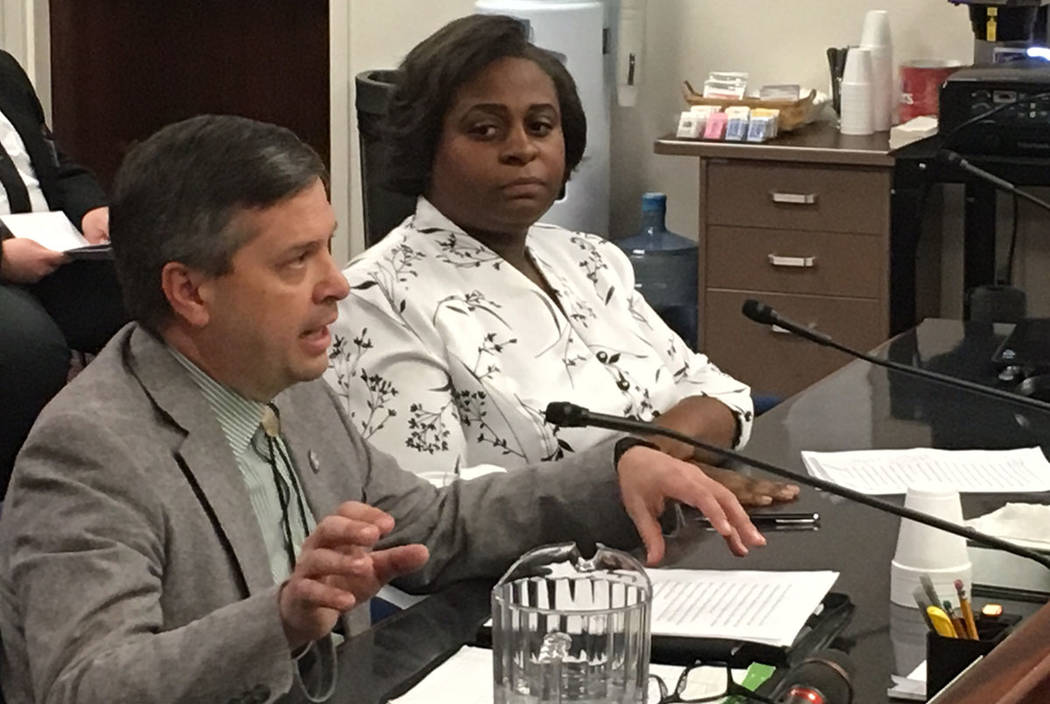Nevada college students to see 4 percent fee increase

Students who attend a state college will pay 4 percent more in student fees in 2019 and 2020 with Friday’s close vote of the state Board of Regents.
The motion to raise fees for community college, state college and university students passed 7-5, with one regent saying students and families need to share in the burden of the cost.
“We’re asking for another 10 percent increase from the state,” Regent Jason Geddes said. “We need to make sure that our students are stepping up and that our families are stepping up.”
The discussion on fee hikes followed a board directive for Nevada System of Higher Education staff to build a budget requiring an additional $120 million from the state over the next biennium.
Geddes said the state has put out dollars in the form of new scholarships like Promise and the Silver State Opportunity Grant, and that the hikes are a matter of “shared sacrifice.” It’s also a way to more quickly catapult UNLV and the University of Nevada, Reno to the “highest level” of research activity as recognized by the Carnegie Classification. Geddes also said that the 4 percent increase is a way for institutions “just being able to keep up with inflation.”
Regent Allison Stephens strictly opposed the increase.
“I do not support us continuing to go to students, putting all of these costs on the backs of our students,” she said.
The back-and-forth discussion among regents, school presidents and student representatives was tense, chaotic and confusing, with confusion first arising on how the board arrived at the 4 percent figure.
In January, a 1.8 percent fee increase was recommended by the tuition and fee committee, and was based on the most current Higher Education Price Index — an inflation measurement specific to higher education. The newest figure, which was released in December, is 3.7 percent. Committee deliberations, however, occurred in the fall.
Regent Trevor Hayes said the committee should time future meetings to the release of the HEPI, but Crystal Abba, NSHE’s vice chancellor of academic affairs, said that it’s not possible.
Stephens took issue with her characterization on how to move forward.
“The idea that this is not possible is unacceptable to me,” Stephens said.
Additional confusion arose after Hayes made a motion to lock in the new rates for four years for first-time, full-time students at Nevada State College and the universities, and two years for first-time, full-time students at the community colleges. He said the idea of “locking in” tuition had been discussed for three-and-a-half years, and no progress had been made.
“Not one president has called to tell me it wouldn’t work,” he said. “It helps families who are going to pay for college without getting surprised. It is also a huge incentive for students to finish in four years.”
UNR President Marc Johnson said it would be difficult to implement, and after additional discussion, Hayes’ motion failed.
A recalibrated motion from Regent Patrick Carter, which would have prevented schools from imposing the new rate hikes without locking them in, passed. But after a five-minute break, Regent Cathy McAdoo asked to reopen that motion, saying that she heard from presidents that doing so would be too difficult.
Stephens was incensed.
“I think this is all incomprehensible,” she said. “I have never heard of us backing away from a policy decision because it’s difficult to implement. It sounds like there was some lobbying in the hallways after we made a decision, and instead of accepting it, there was an attempt to undo it very shortly after.”
The re-opened motion failed.
In an unrelated matter on Friday, the board approved a $25 million distribution to the schools from its operating pool reserve. This is the second distribution this year, and was recommended because of good market performance, according to Chief Financial Officer Chet Burton. Schools will use the money for deferred maintenance projects.
Contact Natalie Bruzda at nbruzda@reviewjournal.com or 702-477-3897. Follow @NatalieBruzda on Twitter.













